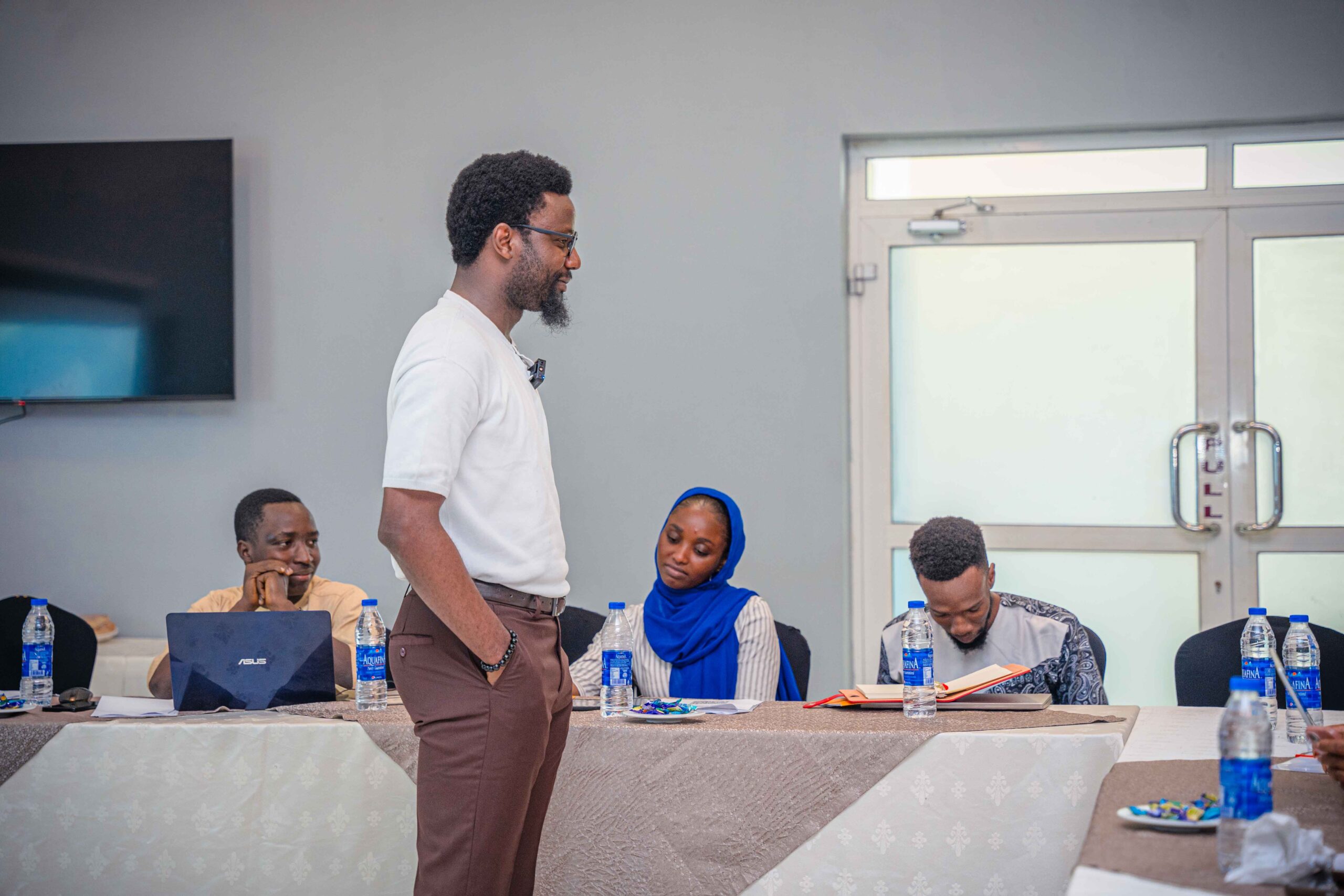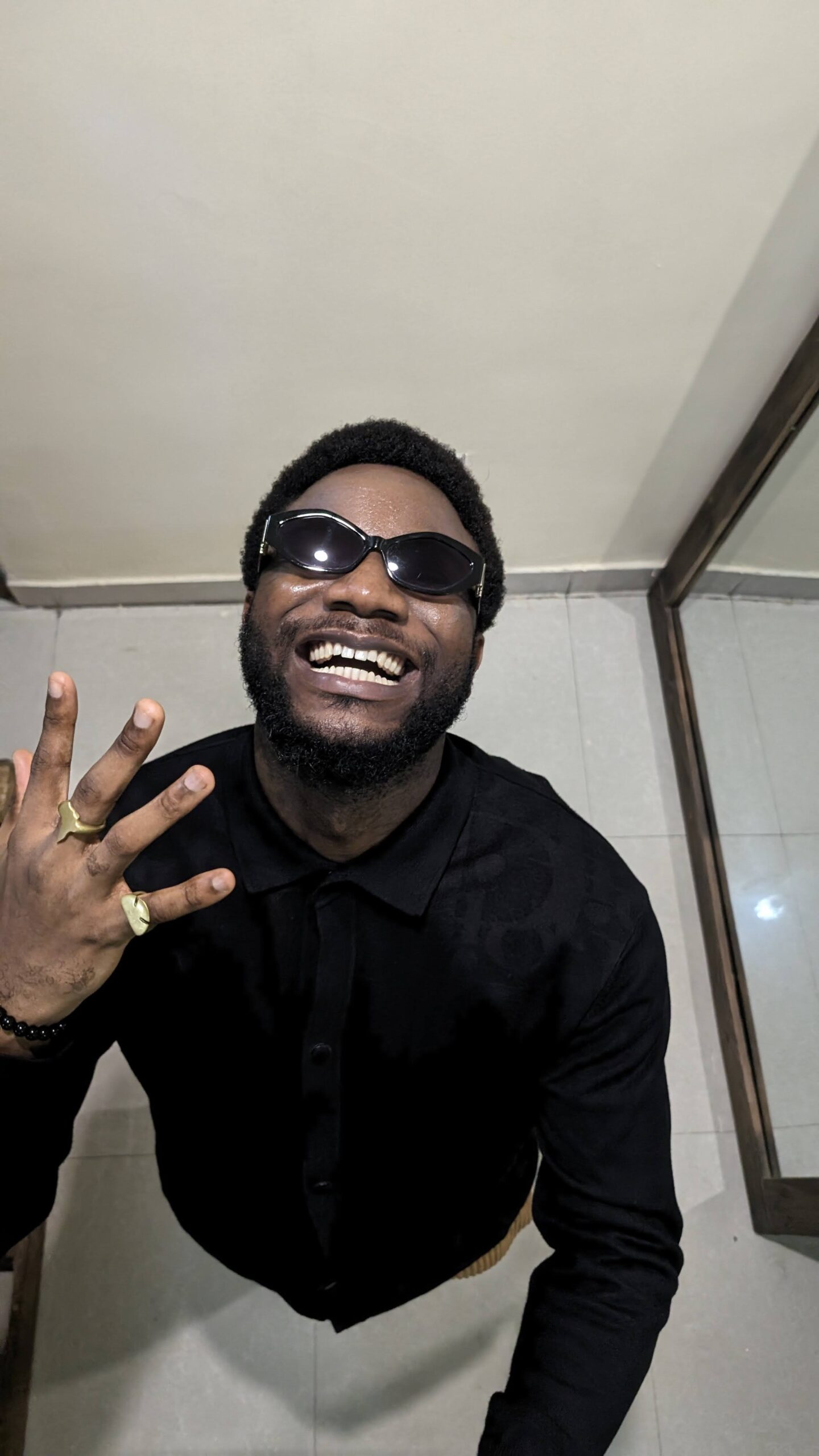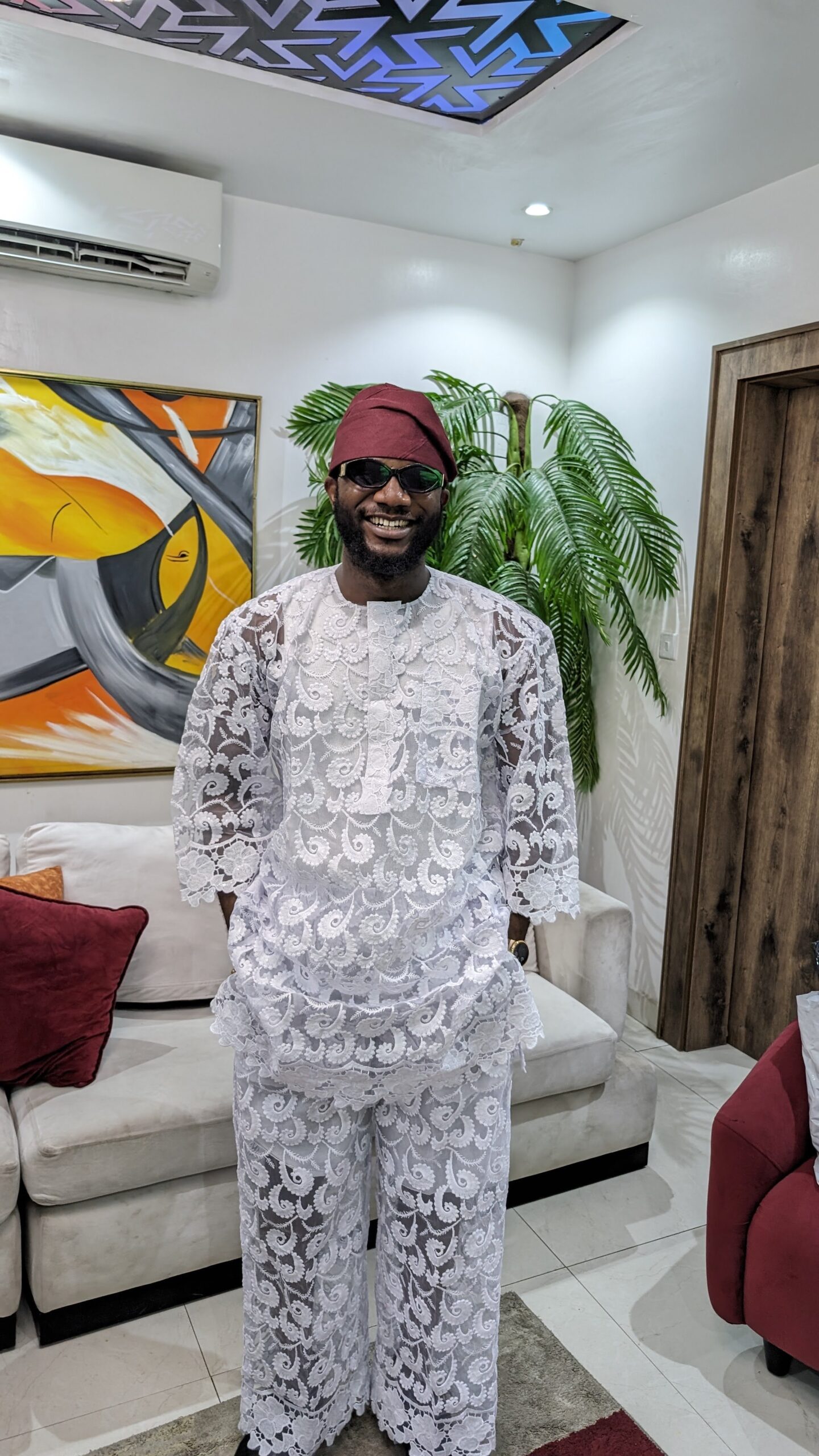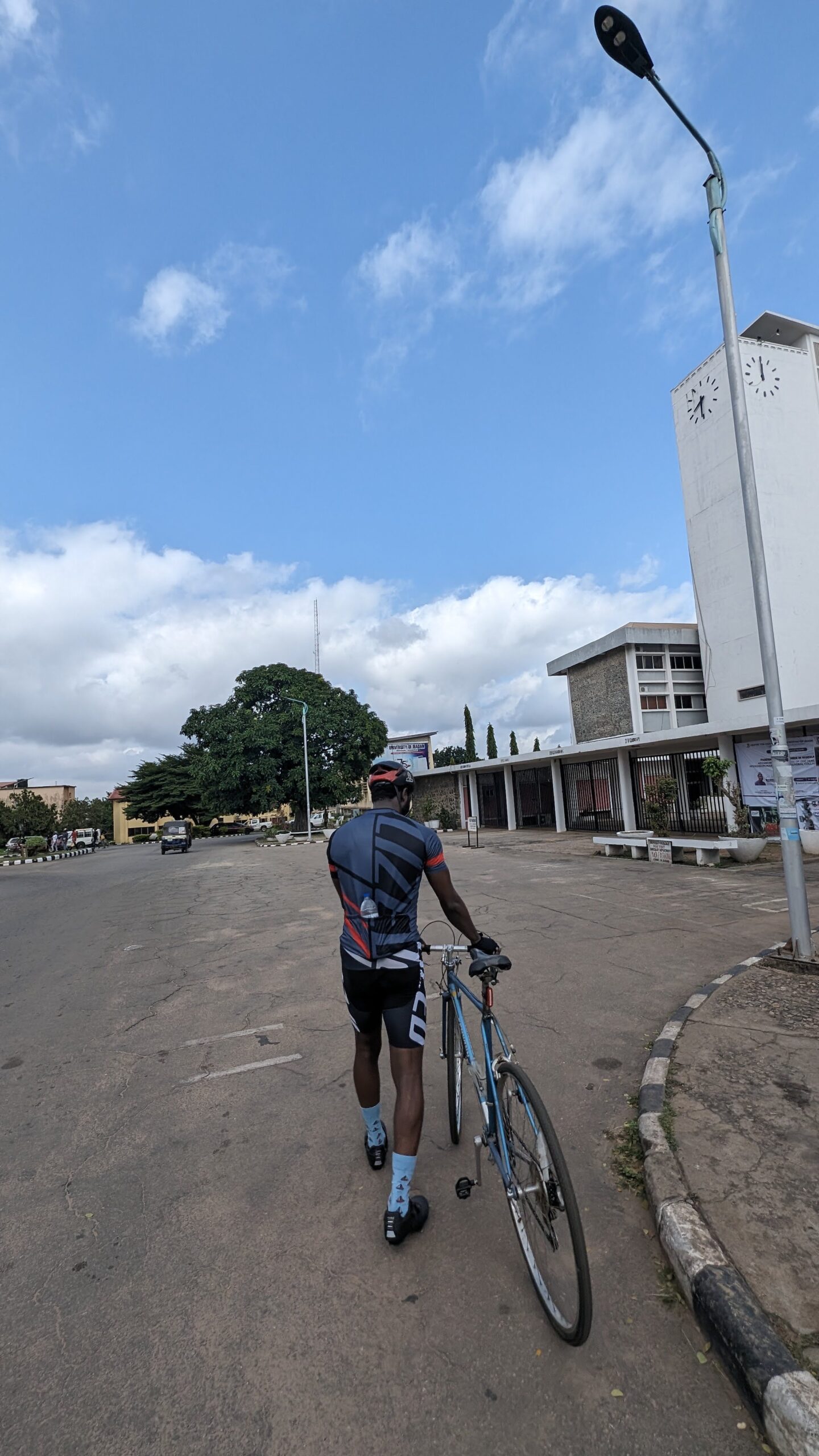Doing Life With… is a BellaNaija Features series that showcases how people live, work, travel, care for their families and… everything in between. We are documenting the lives of all people and ensuring everyone is well-represented at BN.
Did you miss our conversation with Dejoke Ogunbiyi? You can catch up here.
This week, we’re doing life with Temitayo Akinyemi, a journalist, creative writer and editor. He won the MFWA’s West Africa Journalist of the Year Award in 2023. Akinyemi has worked as HumAngle’s Interactive Editor and Zikoko Citizen’s Editor-in-Chief. Enjoy the conversation.
Hey Temitayo, how do you do?
Hey, it’s a pleasure to be here. Like most Nigerians, I am trying to navigate these Tinubu times.
We all are. Give me a peep into your background and what part of your childhood influenced who you are today
I read a lot of old newspapers. I did not grow up in the 80s (I am glad I only had to face Buhari once), but my father kept a lot of newspapers and magazines from that period, which I consumed with intent. I fell in love with Nigerian history reading those papers and the role of journalists in documenting history.
You graduated as a law student but decided not to practise Law. What informed this decision?
I knew I wanted to do journalism since I was a kid. I enjoyed those old papers, watched network news, and loved current affairs. As I grew, I started to have journalists whose works I favoured and newspapers I enjoyed reading (Compass, Saturday Punch, Sunday Tribune, and Daily Sun were top of that list). Unfortunately, most of the journalists I liked from the 2000s have crossed to political camps so I won’t be mentioning names. But there were a lot of impeccable storytellers in newsrooms. I wanted to be like them: to tell stories and to tell them well. I wanted to write things that thousands will read, trust, and debate. After one session of studying Law, I knew I didn’t belong there. I considered dropping out and starting again as a Mass Communication student. In the uncertainty of how to deal with an unlikely future in Law, I started writing under a pseudonym. People loved it. I started with poetry, then I started publishing some of the socio-political criticisms I had written but didn’t want to share, ironically, because I was afraid of criticism. The criticisms did come but so did the commendations. That I could walk past people in the university, discussing the work they read on some WhatsApp group, fuelled me to do more. So I did more.

Temitayo Akinyemi
The pseudonym slowly fell apart after I joined the Union of Campus Journalists, UNILORIN. It was where I learned discipline and consistency from a senior colleague, Osuji Chima. By the time I was in my final year, my work had given me some local clout but also opened opportunities for me internationally. As an African Liberty Writing Fellow (2019), like the people I read as a kid, my works were read by thousands of people. I am certain that with digital publishing, I must have crossed millions. One day you are dreaming, another day you are living it.
It was a no-brainer upon graduation that I would go into journalism instead of lawyering. So I emptied all the other baskets and put all my eggs in one. I do not regret it. I have since gone on to work across different areas of the media. I have worked on podcasts, featured in print, been published locally and internationally, dabbled in broadcast, and contributed to innovative storytelling formats. No regrets. Just gratitude.
That’s impressively daring, Akinyemi
Thank you.
You’ve worked at different places and worn many hats in these positions. How have your roles in these different organisations influenced each other?
I have always loved stories and how they are told. There were days that I loved TV, days that radio helped me through, and periods of stopping by roadside stalls to read newspapers. More than stories, the thing I have found myself most amused by is the form storytelling takes. For me, whether it is covering the space industry, politics, insecurity and development, or youth culture, as long as good storytelling is happening in great forms that enhance the journalist’s duty to society, I am just happy to be in the room and to contribute. Everything comes together at some point. When I learned how to extract satellite data, or how to use them for enhancing storytelling, I didn’t have the opportunity to utilise it until I moved to another newsroom. Along the line, I have gained a lot of transferrable skills from the incredible people who have held my hands, and it just helps. I have been a reporter, an editor, a newsroom product manager, a newsroom manager and others. Everything comes together. They are muscles, they get exercised, they become toned, and I use them appropriately.

Temitayo Akinyemi
You have made huge strides, won awards and your works have been read by many people. Like you said, that’s a dream come true. But if you’re asked, what success means to you, how would you respond?
I have approached every phase of my life as a project. Each project has its objectives and key performance indicators. I have found joy, I have known pain, but at the end of the day, what matters is how impactful we can become in our short lives. I enjoy teaching journalism practices and tools in the digital media arena a lot, and for that aspect of my career, seeing adopters is a success. I have won awards and those count for something. But before you get to submitting stories for awards, so many things happen, so much time will pass. If your success is merely on the award, then you may not be at peace with yourself. In that arena, success for me is impact on readers, reception to stories, etc. Again, different phases, different metrics. On some days, success is being able to get home and sleep peacefully.

Temitayo Akinyemi
Do you have an unconventional thought about the world that people might not agree with?
Everything is a tool (religion, taxes, friendships, telephones, jobs) and tools are agnostic. The outcomes from each tool depend on the intention and skill of the user. Alternate point: it’s okay to be a hater. Just don’t be hypocritical about it.
Tell me about a moment in your life you felt utterly proud of yourself and nothing else mattered

Temitayo Akinyemi
What’s a typical day in your life?
Work. Instant messaging. More work. More instant messaging. Debit alerts. I used to be very big on routines but the past two years have taught me to be adaptable to chaos. I still try to have some routines, still try to wake up at the same time each day. But when I don’t follow routines, I forgive myself. Repeat: Work. Instant messaging. More work. More instant messaging. Debit alerts.
Debit alerts, you simply can’t escape it
I tell you.
Is there a skill or hobby you picked in recent times and enjoy
See. I woke up one Sunday afternoon in 2022 and hated that I had always wanted to cycle but didn’t know how to. So I went to buy a bicycle and taught myself with help from YouTube and passers-by. For skill, I would say AI prompting.
One crazy thing you’d do if the world wasn’t watching you
Crazy thing: Elope.
One thing you incredibly look forward to in the future?
Looking forward to the next payday (I kid). Media innovation in Nigeria.
Thank you for being on Doing Life With…, Temitayo
Thank you for having me.
__
Many thanks to Temitayo Akinyemi for having this conversation with us and answering all our questions – and swiftly too, we must add.
Do you love this content, have any feedback for us or want to be a BellaNaija Features contributor? We’d love to read from you. Shoot us an email: [email protected]. Join us next time for the next episode!


